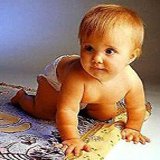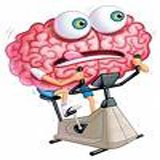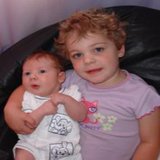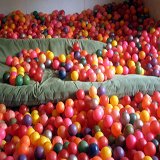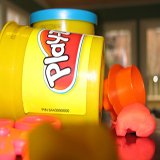Early Childhood Activities -> 6 - 9 Years
A short course on how to play kid games and young children activities
Early childhood activities can prepare young school-age children for the more academically intensive education that lies ahead. This is the time when they build on the important developments of the first 6 years of life. They want to establish themselves as separate from their parents. They can express their needs since they have greater command of language.
School-age children have longer attention spans. They are more likely to stick with things until the project is finished, the problem solved, or the argument resolved. Doing things together with friends, teamwork, and following rules become very important. This age group is fascinated by rules and can develop games with extensive rules and rituals.
Because of their developing imaginations and rich fantasy lives, they may have trouble telling fantasy from reality. They may also talk about imaginary friends. Activities for early childhood will give preschoolers clear and simple rules so that they know the boundaries of acceptable behavior.
Whether you call it K, Kindergarten, Grade 1 or Early Elementary in your country, this is the place where you will find a short course on how to play kid games and playthings listing the skills associated with play, appropriate playthings and what caregivers can do for 6 - 9 year old children and how to guide them through this very important developmental stages.
Ages and Stages of Child Development: 6 - 9 years
SOCIAL:
- board games,
- tabletop sport games,
- organized sports
- hobby kits,
- kites,
- balls,
- skates,
- bikes
Other Ages and Stages of Child Development
INTELLECTUAL:
- dolls,
- toy typewriter,
- printing set,
- racing car,
- construction sets,
- science and craft kits,
- handicrafts,
- sports and hobbies,
- books,
- tapes,
- puzzles
SPATIAL RELATIONSHIPS (moving confidently through space):
- large bicycles,
- ice and roller skates,
- pogo stick,
- scooter
CREATIVE PROBLEM SOLVING:
- costumes,
- doll houses,
- play villages,
- miniature people and vehicles,
- magic sets,
- art materials
What caregivers can do to promote play in kid games:
- Be observant of children's play.
- Ask "What did it look like?" and "What did it feel like?"
- Play make-believe games.
- Build things.
- Play competitively at games and play situations.
- Improvise imaginary characters and play situations.
- Play theatre and puppet dramas.
- Encourage creative writing and poetry.
- Play work games.
- Attach names to objects.
- Play sandlot sports.
- Tell jokes and riddles.
- Read to the children.
- Let the children read to you.
- Help children to organize and clarify things.
- Take children to the library.
They have had enough personal knowledge to master the simple concepts of life. They begin to switch from parallel play towards a much more interactive play with other children. Each and every early childhood activity are essential to developing a brainy child.
The interaction with your child forms very an important part of the early stages of development. Thats why it is essential to have better understanding of the ages and stages of child development for better parenting.
Do you know some more early childhood activities?
Please let me know by making use of the How to Raise Smart Kids link.
Well, there are lots of early childhood education programs available.
Be warned: This development stage is the most challenging.
Find It!
Can't remember where you read something specific? Just type in your search term in the box below and your specific topic will be returned to you instantly.





